A lot of people often ask how I manage to read so much.
Admittedly, I probably do read faster than the average person, but that’s only because I’ve been reading voraciously for most of my life. (And the goal should never be to speed through as many books as possible).
The main reason I’m able to read so much is that I make time for reading. And that’s a lot easier than you think.
The average person spends about two hours on social media a day. Ask yourself: When’s the last time scrolling through your social media feeds left you feeling less anxious or more fulfilled with your life? Probably never, right?
When it comes to free time, you have control of how you use it. Therefore, if you want to read more, you should make time for it. If you want to spend more time on social media, that’s what you’ll end up doing.
Another great way to read more is to listen to audiobooks (yes, they count) while driving, exercising, or doing work around the house. Apps like Libby connect to your local library and let you rent audiobooks and Kindle books for free.
Anyway, I read about 90 books this year, and of those books, I’ve listed the top 10 nonfiction and fiction books I read in 2021. I hope you find something that piques your interest!
The 10 Best Nonfiction Books I Read in 2021
10. Inspired: Slaying Giants, Walking on Water, and Learning to Love the Bible Again – Rachel Held Evans
As the subtitle implies, Inspired is about learning to love the Bible again, and the late Rachel Held Evans brilliantly weaves together a rich tapestry of memoir, theology, history, and creative storytelling to achieve that aim. There’s a lot of books out there about the Bible, but what sets Inspired apart from that crowded field is Evan’s commitment to dive headfirst into the messy, contradictory, offensive, and head-scratching bits of Scripture most popular Christian books happily ignore and pretend don’t exist.
Conservative and progressive readers alike will be challenged by this book, and it’ll be a welcome balm for Christians tired of shallow retreads of the same stories and themes they’ve heard countless times before. You may finish Inspired with more questions than answers, but at least you’ll know you’re not alone.
9. Think Again: The Power of Knowing What You Don’t Know – Adam Grant
Adam Grant’s Think Again is one of those books you wish you could get into the hands of everyone you know. More than anything else, Think Again is a challenge to approach the world with humility and curiosity. It’ll teach you how to have better conversations and watch the news with more discernment. Of particular note is Grant’s chapter on “complexification,” or the idea that an honest pursuit of knowledge should lead to an appreciation of the complexity of a particular topic (rather than a Twitter-sized sound bite). If you’ve been rethinking your political or religious beliefs, Think Again serves as an encouraging guide and reminder that constantly “upgrading” and revising your worldview is one of the best parts of being human (and the key to a more hopeful posture toward the world around you).
8. Like Streams to the Ocean: Notes on Ego, Love, and the Things That Make Us Who We Are – Jedidiah Jenkins
Jedidiah Jenkin’s Like Streams to the Ocean is a collection of essays centered around specific themes (like ego, family, home, love, death, etc) that works as an almost-spiritual rumination on how best to live a good and generous life in the modern world.
Jenkins became “internet famous” several years ago after he quit his job when he turned 30 and biked from Oregon to Patagonia (the subject of his marvelous memoir To Shake the Sleeping Self). While Like Streams to the Ocean isn’t as narratively focused as his cross-continental trek (it’s a collection of essays, after all), it reads like a breezy late-night conversation with your most interesting friend (plus, each essay is headed by beautiful pen-and-ink illustrations drawn by Jenkins himself.
7. Freedom – Sebastian Junger
What is freedom? We know it’s important, but freedom is a near-undefinable concept – and disagreements over its application form the basis for every “culture war” flashpoint and contentious political disagreement. In Freedom, Sebastian Junger – a former war journalist – attempts to unpack the word while hiking alongside the U.S. rail lines with a group of veterans.
Freedom is the only book I read twice this year – which is easy to do considering it’s only 130 pages long. A blend of travelogue, history, and anthropology, Junger explores how the concept of freedom evolved from the Bronze Age to the present day through a series of fascinating vignettes. Whether you agree with Junger’s observations or not, you’ll undoubtedly have a lot to talk about during your next dinner party.
6. The Invention of Nature: Alexander von Humboldt’s New World – Andrea Wulf
There are more places (parks, rivers, streets, forests, etc) named after Alexander von Humboldt than any other person who ever lived. And, yet, he’s largely been forgotten by history.
The Invention of Nature is a riveting and enlightening read, due in no small part to author Andrea Wulf’s meticulous prose and consistent framing of Humboldt’s ideas within his historical context. Also, Humboldt was just a fascinating man: A celibate (possibly gay) German explorer living in the late-1700s/early-1800s who was fiercely anti-slavery, rubbed shoulders with the likes of Napoleon and Thomas Jefferson, embarked on numerous expeditions to some of the most hostile environments known to man, and whose work influenced Charles Darwin, Henry David Thoreau, and John Muir. If you appreciate nature on a spiritual, scientific, or creative level, you owe it to yourself to learn where those ideas came from – and The Invention of Nature is the best place to start.
5. Four Hundred Souls: A Community History of African America, 1619 – 2019 – Edited by Ibram X. Kendi and Keisha Blain
Beginning with the disembarkation of 20 slaves onto Virginia’s shores in 1619 and ending with the reprisal of the Black Lives Matter Movement in 2019, Four Hundred Souls: A Community History of African America, 1619-2019 traces 400 hundred years of Black history through the eyes of 90 modern Black authors and poets. Each contributor was assigned a five-year period of time within the 400 hundred years and they could do with it whatever they wanted – historical analysis, nonfiction essay, memoir, short story, or poem. Four Hundred Souls is truly a magnificent artistic achievement in that it allows the reader the opportunity to experience Black history through a multitude of voices, perspectives, and genres.
4. Empire of the Summer Moon: Quanah Parker, and the Rise and Fall of the Comanches, the Most Powerful Indian Tribe in American History – S.C. Gwynne
Empire of the Summer Moon is how history should be written: Impartial, unapologetic, and brutally honest. An account of the forty-year war between U.S. settlers and the Comanches – one of the most powerful Native American tribes in American history – author S.C. Gwynne pulls no punches in his depictions of atrocities committed by both sides of the conflict. Anchored by the fascinating story of Quanah Parker, the last great war chief of the Comanches whose mother was a kidnapped white settler, Empire of the Summer Moon is narrative nonfiction at its absolute and ferocious best.
3. Jesus and John Wayne: How White Evangelicals Corrupted a Faith and Fractured a Nation – Kristin Kobes Du Mez
A history of modern American Evangelicalism, Jesus and John Wayne spans covers everything from the Billy Graham’s revival meetings and creation of Focus on the Family to the rise of the Moral Majority and the 2016 election of Donald Trump. More than anything else, author Kristin Kobes Du Mez is intent on exploring how a fixation on a particular brand of masculinity and patriarchal leadership led to the elevation of those values at the expense of Jesus’s teachings.
Perhaps the most disconcerting takeaway from Jesus and John Wayne is the implication that all of the weirdness in American Evangelicalism (and, to a larger extent, the entire country) we’ve experienced over the past few years was by design, an inevitable conclusion wrought by an unholy alliance made between politicians, businessmen, and complementarian theologians.
2. Cultish: The Language of Fanaticism – Amanda Montell
In Cultish, language scholar Amanda Montell explores how language is used to shape and construct our realities – especially as they pertain to groups that blur the line between religion and fandom. Montell absolutely hit my sweet spot with this book: Suicide cults, Trumpism, New Age self-help, social media influencers, Scientology, charismatic Christianity, multi-level marketing schemes, CrossFit, Peloton, “spiritual but not religious” millennials, and so much more. It would’ve been easy for a book like this to be judgmental and cynical, but Montell approaches all of these topics with a refreshing and genuine curiosity. You’ll come away from Cultish with a greater understanding of the more troubling aspects of our current cultural moment.
1. Four Thousand Weeks: Time Management for Mortals – Oliver Burkeman
Oliver Burkeman’s Four Thousand Weeks is one of the most profound books I’ve ever read. Not only does it serve as a philosophical rumination on mortality (and efforts to postpone thinking about death), it’s also a scathing indictment against the “Gospel of Self-Optimization,” or the capitalistic impulse to “be more productive all the time.” The “4,000 Weeks” of the title? That’s the average amount of time each of us has to live. This book may be filled with existential dread, soul-shattering reality checks, and worldview-shifting truth bombs – but for those willing to be challenged by the piercing wisdom in Four Thousand Weeks, you may find a soothing balm to your self-sabotaging attempts at living a so-called “balanced life.”
Read this book – I don’t say this often, but the observations and insights in Four Thousand Weeks literally have the power to change your life and rethink every one of your priorities.
The 10 Best Fiction Books I Read in 2021
10. Piranesi – Susanna Clarke
Susanna Clarke’s Piranesi is a strange, magical novel that blurs the line between fantasy, literary fiction, and mystery. I strongly recommend going into Piranesi with as little information as possible, but know that it’s written from the perspective of a man who inhabits a multi-story labyrinth of large hallways and Classical statues that’s so large that it’s occasionally flooded by tides.
Piranesi is short, only about 250 pages, and you’ll probably spend the first half of the book very confused about what’s going on. But that’s by design. The novel builds to a gradual series of reveals that will undoubtedly trigger multiple “Aha!” moments for the attentive reader.
9. Nutshell – Ian McEwan
So, here’s the plot: A pregnant woman cheats on her husband with his brother, and together they plot her husband’s murder. Sounds pretty standard, huh? Here’s the hook: Everything – and I mean EVERYTHING – is told from the point of view of the 9-month unborn baby in the woman’s womb.
Nutshell is, if nothing else, an absolutely incredible experiment in voice and perspective. While the machinations of the crime are nothing special, experiencing the world from the viewpoint of a baby in utereo is something you’re unlikely to encounter in any medium – especially a literary one. Also, at 180 pages, Nutshell never overstays its welcome.
8. The Overstory – Richard Powers
Richard Power’s Pulitzer Prize-winning novel The Overstory is an epic tale of activism and environmentalism as a series of interconnected characters fight to save one of our most precious natural resources: Trees. After opening with eight brilliant short stories that introduces us to the major characters, the interwoven narrative brings them all together during the 1990s “Timber Wars” in the Pacific-Northwest. Infused with beautiful prose that begs to be read outside, it’s safe to say after reading The Overstory you’ll never look at a tree (or a forest) the same way again.
7. Interior Chinatown – Charles Yu
Interior Chinatown follows Willis Wu, a second-generation Asian immigrant, who lives above a Chinese food restaurant in Los Angeles that doubles as a Chinatown location set for Black and White, an NCIS-like police procedural TV show. In the show, Wu is cast as a “Generic Asian Background Character,” a role that requires stereotypical Asian mannerisms. But Wu harbors ambitions to star as “Kung Fu Guy,” the most coveted supporting role in Black and White among his Asian friends and family members.
Written in form of a shooting script (and in Courier font), Interior Chinatown is a bracing and sharp satire that tackles the model minority myth, the unique struggles of second-generation immigrants, and the cringeworthy inadequacies of Hollywood’s “diversity” efforts, while also doubling as a haunting examination of the “roles” Western society imposes on immigrants.
6. The Guide – Peter Heller
Peter Heller’s The Guide follows Jack – the damaged protagonist from the 2019 survival-thriller The River – as he takes a summer job as a fishing guide at an exclusive fishing lodge for billionaires nestled among the Colorado backcountry. However, things aren’t quite as they seem at the Kingfisher Lodge, and as the mysteries mount and questions go unanswered, Jack realizes something far more sinister is afoot in some of the most pristine wilderness on Earth.
Author (and Colorado native) Peter Heller once again succeeds at transporting his readers into the great outdoors. The sights, smells, and sounds of Central Colorado are rendered beautifully through Heller’s gorgeous prose. The mystery at the heart of The Guide is enthralling, and the way the reveal is connected with current events is particularly prescient.
5. Cloud Cuckoo Land – Anthony Doerr
Throughout Cloud Cuckoo Land, three storylines interweave and collide: In 1453, a young boy and girl find themselves on opposite sides of the siege of Constantinople…In 2020, a teenager walks into a public library with an automatic pistol and a bomb…In the 22nd century, an interstellar “generation ship” hurtles through the cosmos with the remnants of humanity aboard…
Cloud Cuckoo Land is a wondrous literary thriller that speaks to the power of storytelling, the fragility of our environment, the dangers of ideological extremism, and the sanctuary of libraries. I devoured this novel in 100-page chunks. If you’re a reader at heart, it’s hard for me to see you being disappointed with Cloud Cuckoo Land, a beautiful, thought-provoking, and thrilling reading experience.
4. Wolf Hall and Bring Up the Bodies – Hilary Mantel
You probably know the broad strokes of Henry VIII’s reign – The Tudors, Anne Boleyn, the separation of the Church of England from Catholicism, the executions – but you’ve never read like this. Told from the perspective of Thomas Cromwell, a low-born son of a blacksmith who ascends the halls of powers to become Henry VIII’s most trusted advisor, author Hilary Mantel delivers a complex and sympathetic portrait of a man we know very little about. Wolf Hall and Bring Up the Bodies are literary masterworks, gorgeously rendering one of the most turbulent eras of England’s history in a way that feels raw, intimate, and relevant. And, at the center of it all is Cromwell, the “man behind the curtain,” using whispered secrets, salacious gossip, and idle chat as brutal weapons to do the King’s bidding and protect his own delicate position.
3. Matrix – Lauren Groff
Lauren Groff’s Matrix is a majestic exploration of female leadership, sexual desire, faith, duty, and friendship during the 12th-century. The novel centers around Marie de France, an illegitimate heir to the French Crown who is exiled to a run-down abbey in the English countryside. At first resistant to the harsh life of a nun, Marie slowly warms to her new sisters and begins rejuvenating the abbey, eventually creating a secluded haven for disgraced women. Matrix is fairly short – only 250 pages – but it carries the weight of a historical epic. Some people may be put off by the writing style – there’s not much dialogue – but I found Matrix to be a rich and passionate character study packed with fascinating slice-of-life historic detail.
2. The Poppy War Trilogy – R.F. Kuang
Inspired by 20th-century Chinese history, R.F. Kuang’s The Poppy War trilogy elevates the fantasy genre with its infusion of real-world historical events into a brilliantly re-imagined fantasy world of warring nations, gods, and monsters. After the nation of Nikan is invaded by the Federation of Mugen, peasant-girl Rin is unceremoniously thrust into a desperate war for the survival of her homeland. The three novels in The Poppy War trilogy – The Poppy War, The Dragon Republic, and The Burning God – follow Rin’s evolution from a naive student to battle-hardened general amidst foreign occupation, civil war, and cultural genocide.
The Poppy War trilogy isn’t lighthearted escapist fantasy. With her emphasis on war’s impact on civilian populations, author R.F. Kuang has crafted a grim and gritty narrative that will grind your face into the horrors of war. It’s also beautifully written, heartbreaking, and unforgettable. Send this series to the top of your TBR pile for 2022.
1. The Secret History – Donna Tart
Donna Tartt’s The Secret History is one of the most perfectly executed novels I’ve ever had the pleasure to read. The plot follows a small group of brilliant students who fall under the influence of their charismatic Classics professor at an exclusive New England university. And believing themselves to be intellectually superior to their peers, the students begin exploring new ways of living that push them beyond the bounds of everyday morality toward an act of shocking pre-meditated violence.
Nearly every aspect of The Secret History hit me in the right spot: The academic setting. The creeping paranoia. The eyebrow-raising relationships between the characters. The sly critique of class and privilege. The biting satire of Liberal Art programs. And an ending that might just be one of the most haunting denouements I’ve ever read.
What books from this list on you thinking about checking out? And what books made your “best of” list for this year? Let me know in the comments below!
Disclaimer: As an Amazon affiliate, I earn a small percentage from qualifying purchases at no additional cost to you.

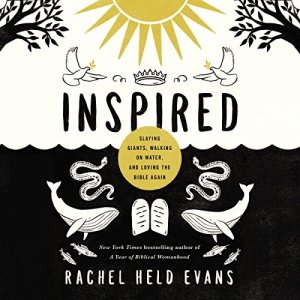

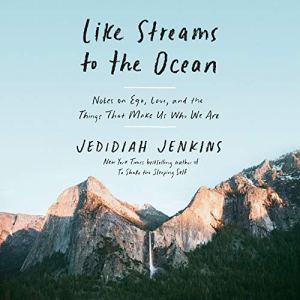
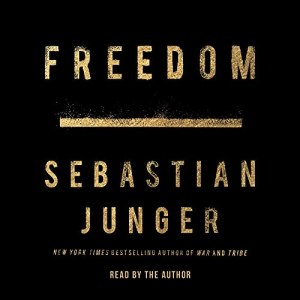
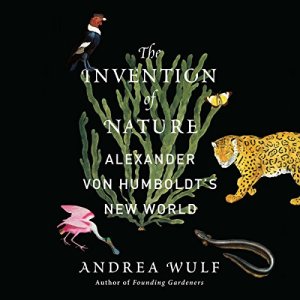
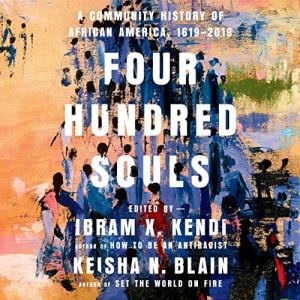

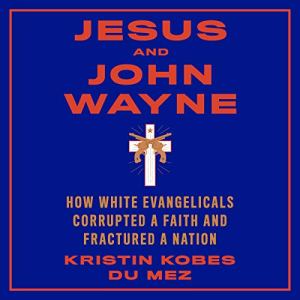

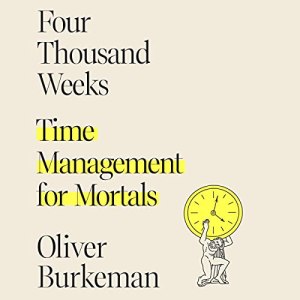
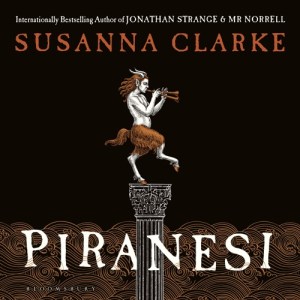


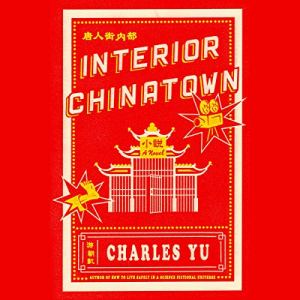
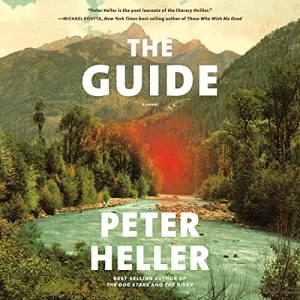
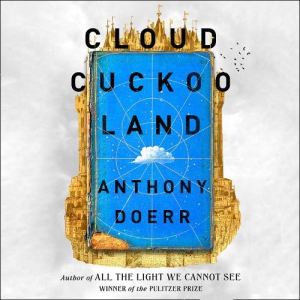
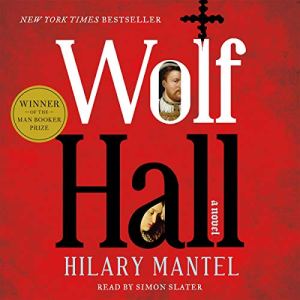
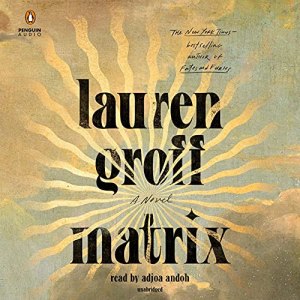

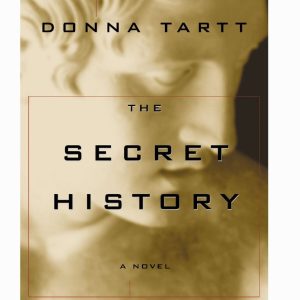
I really enjoy your posts and I really appreciate your inclusiveness with this one. I’m mixed African American and Filipino and I was shocked when I found out about my Asian grandmas true ignorance on the AA slave trade. She was literally taught that we came to America by choice to look for jobs and Black people just complain to complain. She wasn’t mean about it, it’s just what she was taught and believed. So.. I really appreciate the books that you included in this list. I’m a big fan.
LikeLiked by 1 person